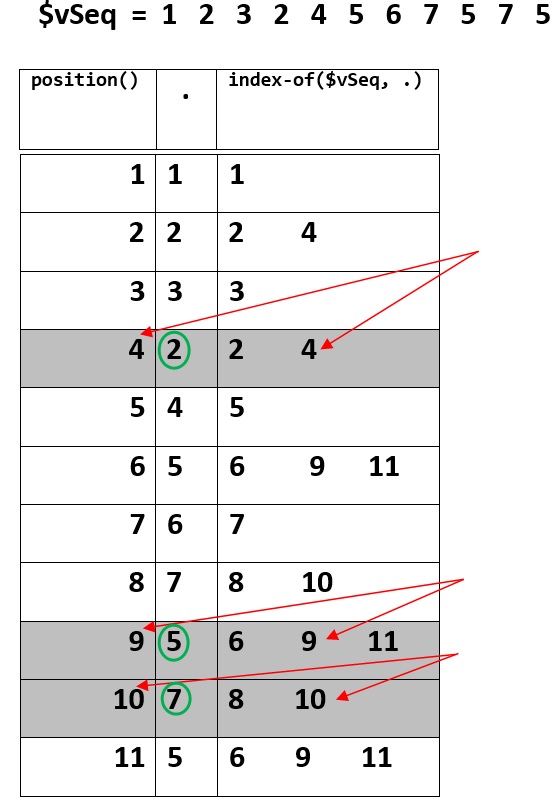I have an XPath expression which provides me a sequence of values like the one below:
1 2 2 3 4 5 5 6 7
This is easy to convert to a sequence of unique values 1 2 3 4 5 6 7 using distinct-values(). However, what I want to extract is the list of duplicate values = 2 5. I can't think of an easy way to do this. Can anyone help?

